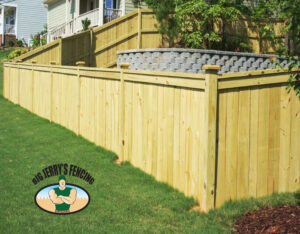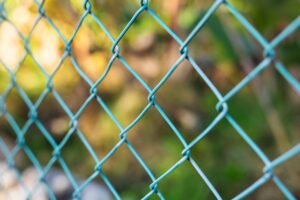When considering installing a fence, the depth of the fence post is an essential detail often overlooked. However, the stability and longevity of your entire fence depend on this one critical aspect. Have you ever asked, “How deep should a fence post be?” Well, this guide will give you the answers and help you ensure your fence stands firm for years to come.
The Importance of Correct Fence Post Depth
Stability against External Forces
The deeper the post, the better it can withstand pressures like wind, leaning, and the weight of the fence itself.
Longevity of the Fence
With adequate depth, the fence post is less likely to rot or shift, ensuring the fence’s extended life.
Safety Concerns
An adequately anchored fence post reduces the risks of the fence collapsing, thereby ensuring the safety of both residents and commercial properties.
Factors Determining Fence Post Depth
Fence Height
Generally, at least one-third of the fence post should be buried underground. For example, a 6-foot post for a 4-foot fence ensures optimal depth.
Soil Type
Loose sandy soil may require deeper fence posts than compacted clay soil to achieve the same level of stability.
Fence Material
Heavy materials like iron or hardwood might need deeper posts compared to lighter materials such as vinyl or aluminum.
Climate and Weather
Areas prone to strong winds or frequent storms should consider deeper fence posts. Furthermore, regions that experience freeze-thaw cycles need to ensure posts are set below the frost line to prevent upheaval.
H1: Tips for Ensuring Correct Fence Post Depth
Pre-Dig Holes
To make the installation process smoother, pre-dig the holes. Ensure they’re a bit wider at the bottom for better stability.
Use Concrete
For added strength, consider setting your fence posts in concrete. This not only enhances stability but also helps prevent rot at the base.
Consult Professionals
If you’re unsure about the depth for your specific needs, consult a fencing professional or local building codes to ensure you’re compliant.
Common Mistakes to Avoid
Skimping on Depth for Savings
It might seem cost-effective initially, but setting fence posts too shallow can lead to expensive repairs down the line.
Ignoring Drainage
Ensure that the base of your post hole has proper drainage to prevent water collection, which can accelerate rot.
Not Checking for Utilities
Before digging, always check for underground utilities to avoid accidents and disruptions.
Conclusion
The question, “How deep should a fence post be?” might seem straightforward, but the answer plays a critical role in your fence’s stability, safety, and lifespan. Whether you’re a DIY enthusiast or seeking professional help, ensuring the correct fence post depth will give you peace of mind for years.
External Links:


















